The Royal Opera has come over all baroque. In the Linbury Theatre, they’re hosting Irish National Opera’s production of Vivaldi’s 1735 carnival opera Bajazet; unsurprisingly, its first appearance at Covent Garden. Upstairs in the big room, they’re doing Handel’s Theodora: premièred at Covent Garden in March 1750 and then ignored by the Royal Opera and its forebears for the next 272 years. In fairness, it isn’t actually an opera. It’s an oratorio, and it was a flop. Handel attributed its neglect to the fact that the story ‘is a virtuous one’, though the music’s emotional appeal is uncompromising, and the basic morality — Christians and virtuous pagans vs a tyrannical Roman governor — is clear-cut.
Well, we can’t be having that — this is 2022, after all. Katie Mitchell’s impressive new staging takes those certainties and blurs and inverts them, tweaking plot and characterisation to convert an 18th-century hagiography into the equivalent of one of those moody, well-reviewed TV thrillers, complete with morally ambivalent anti-heroine, bleak urban settings, and the rumbling threat of telegenic ultraviolence. The setting, realised in exquisite detail in Chloe Lamford’s sets, is the embassy of some unspecified (but clearly authoritarian) modern state. The tyrant Valens (Gyula Orendt) hosts receptions in a stuffy-looking conference room; meanwhile in the kitchens his staff of Christian insurgents is concealing firearms in the fish kettles. The set slides left and right; we see dingy service corridors, a brothel and a cold store.
It’s superbly realised, and like everything I’ve seen from Mitchell it’s inhabited by some of the most convincing characters you’re likely to see on an operatic stage. Even the non-speaking roles are carefully observed individuals, from anxious pot-washers to the two pole-dancers who gyrate throughout Act Two. The subtlety of Mitchell’s direction gives a hyper-real quality to her more stylised interventions (at times the action drops into mimed slow motion) and builds a stock of credit for the final scenes when — again, like the later episodes of one of those TV dramas — the nuance runs out and the rewritten plot spirals into a bloody revenge-drama, in wrenching counterpoint to Handel’s melancholy, redemptive music.
The cast is exceptional. To say that Joyce DiDonato’s grave, compassionate Irene stood out is no disservice to Julia Bullock’s luminous, vulnerable and (ultimately) unnerving performance as Theodora, or to Jakub Jozef Orlinski’s Didymus: wiry, agile and capable of drawing arcs of sweet, aching sadness from Handel’s more plangent depths. Nor is it simply a matter of fan worship. DiDonato’s voice is darker and more wide-grained than I remember it; she’s at that point in a great singer’s career where even the voice’s acquired patina can be made to illuminate character. In truth, though, the whole company was on fire. Ed Lyon (Septimius) chiselled out his passagework, Orendt rolled and thundered as the monstrous Valens; there were big juicy choruses and, in the pit, there was playing of Hogarth-like richness and verve from Harry Bicket and the Royal Opera House Orchestra.
So the Vivaldi in the Linbury should by rights have come as something of a jolt. There’s a single box-shaped set (the show was designed, by Molly O’Cathain, for touring purposes), a tiny but feisty period instrument band under Peter Whelan, and an entirely different concept of music drama. Bajazet is a pasticcio, and in the pre-copyright 1730s quite a bit of the music was simply plundered by Vivaldi from contemporaries such as Broschi and Giacomelli.
Good luck telling them apart, though, because the whole thing bristles along on such nervy, needlepoint energy that you barely pause to notice; or indeed to overthink these furious oriental potentates and their various lovers and assassins. It’s about outsize characters, extreme emotions and —in Adele Thomas’s gleefully physical direction — the pleasure of watching everyone on stage knocking seven bells out of each other while professing rage (or equally, love) in flashing coloratura.
This was headlong, red-blooded fun, with another cracking cast. Gianluca Margheri roared like a wounded bear as Bajazet, while the bare-chested Tamerlano (James Laing) lurched around with a bleached countertenor to match his psychotic stare, and there were two knockout heroines: Claire Booth’s showstopping queen bitch Irene, and Niamh O’Sullivan, alternately sensuous and steely as the barefoot spitfire Asteria. Act Two ended with an all-out brawl, and coming after Theodorait felt liberating: this kind of raw, eye- and ear-popping entertainment is surely close in spirit to what baroque audiences expected from a night at the theatre. Thomas’s stripped-back Bajazet tips you straight into the mental space of the early 18th century. Mitchell, meanwhile, has invested immense talent in transforming Theodora into something you might see any night of the week on Netflix or BBC4, and there’s a part of me that would have preferred her to give us something different, something new. Or even — to be really radical — something old.
Got something to add? Join the discussion and comment below.
Get 10 issues for just $10
Subscribe to The Spectator Australia today for the next 10 magazine issues, plus full online access, for just $10.
You might disagree with half of it, but you’ll enjoy reading all of it. Try your first month for free, then just $2 a week for the remainder of your first year.

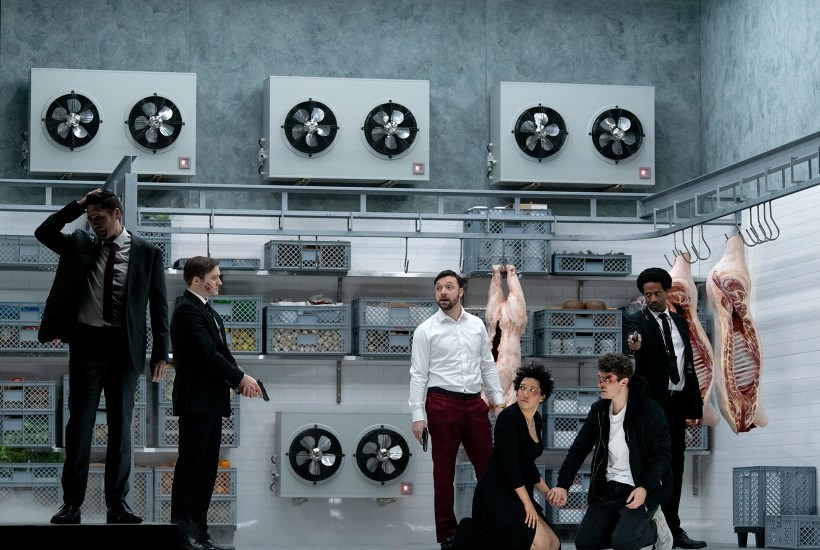

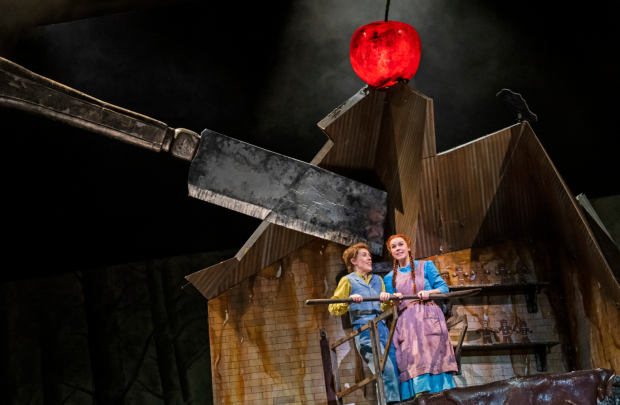
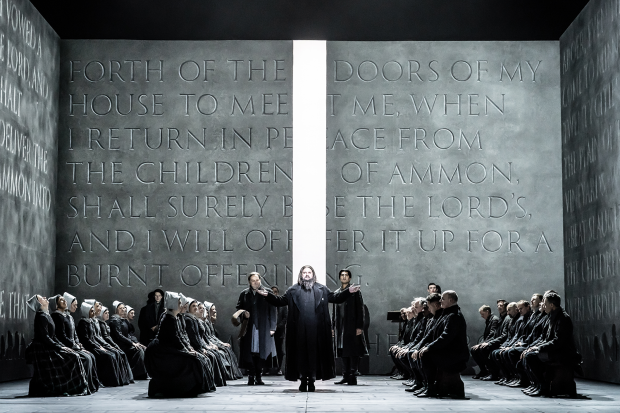
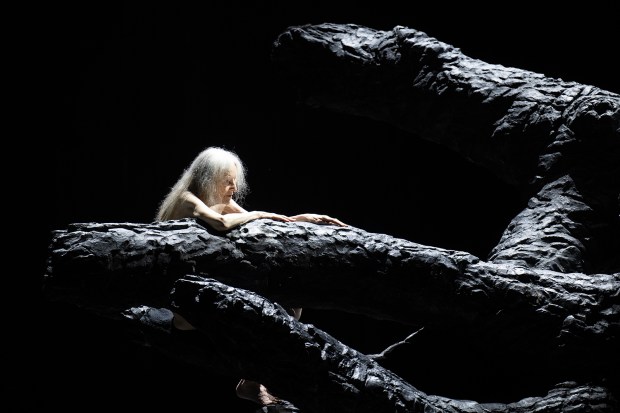
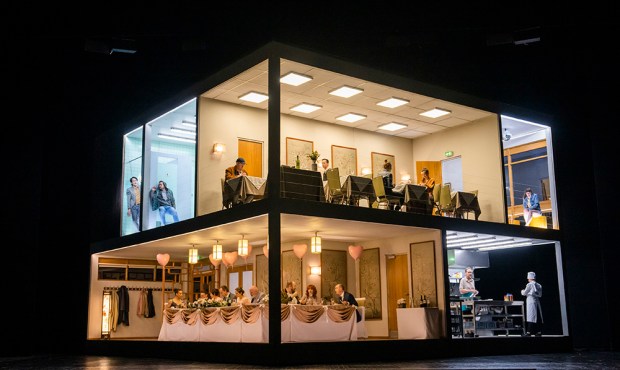
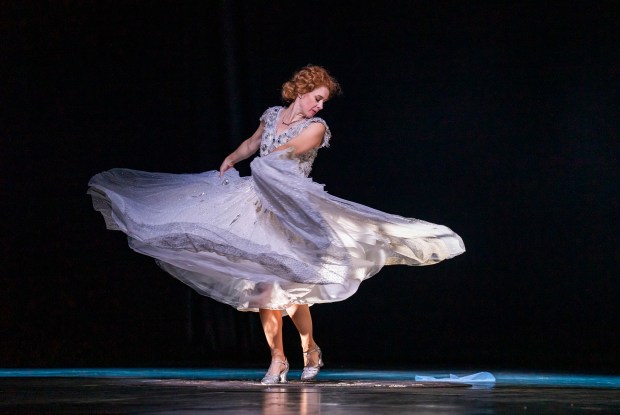






Comments
Don't miss out
Join the conversation with other Spectator Australia readers. Subscribe to leave a comment.
SUBSCRIBEAlready a subscriber? Log in